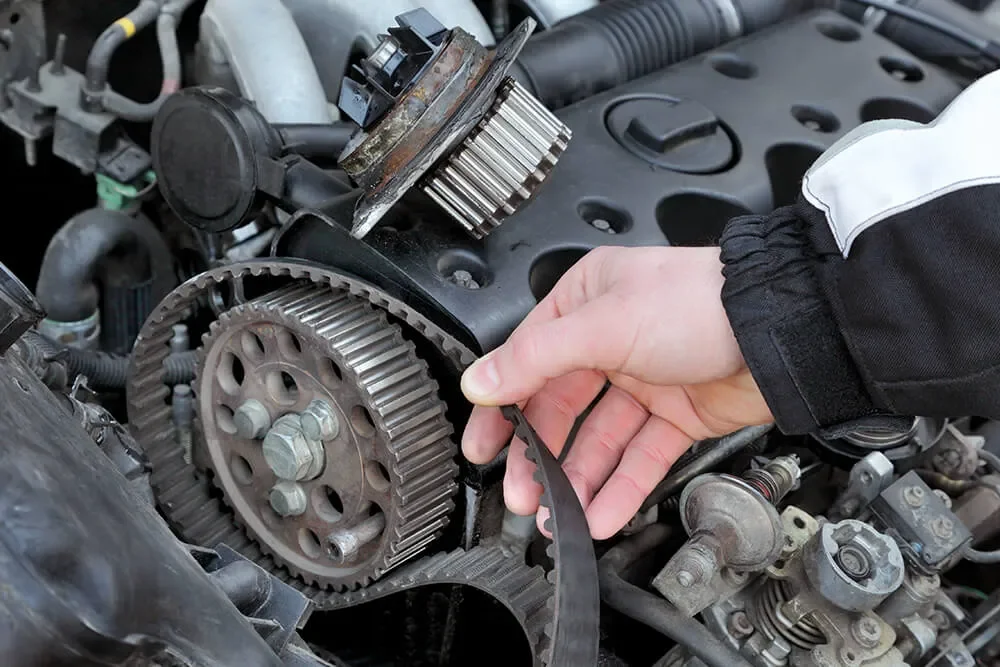The Timing Belt: Engine's Unsung Hero
In the intricate machinery of your vehicle's engine, a silent hero works tirelessly to keep everything running smoothly-the timing belt. Despite its modest appearance, the timing belt synchronizes the engine's components, ensuring optimal performance and efficiency. Let's highlight this unsung hero and why timing belt replacement is essential for your vehicle's well-being.
Precision Timing
The timing belt is at the heart of your engine's operation. It synchronizes the rotation of the crankshaft and camshaft(s). This precise timing ensures that the engine's valves open and close at the right moments during the combustion cycle, allowing for efficient power generation and smooth operation.
Maintenance Intervals
Timing belt replacement intervals vary depending on the vehicle's make, model, and engine type. However, most manufacturers recommend replacement every 60,000 to 100,000 miles or every 5 to 7 years. Adhering to these intervals prevents the risk of timing belt failure and potential engine damage.
Signs Of Wear
While timing belts may not show visible signs of wear, certain symptoms may indicate that replacement is necessary:
- Cracks, fraying, or visible damage on the belt
- Unusual noises coming from the engine, such as ticking or squealing
- Engine misfires, rough idling, or difficulty starting
If you notice these signs, have your timing belt inspected and replaced promptly.
Professional Replacement
Timing belt replacement is a complex procedure that requires precision and expertise. Entrust this task to a qualified mechanic with experience working on your vehicle's make and model. A professional mechanic will ensure that the replacement is done correctly and that all associated components are inspected and replaced.
Preventive Maintenance
During timing belt replacement, inspect and replace related components such as the tensioner, idler pulleys, and water pump. These components work with the timing belt and can affect its performance and longevity. Preventively replacing them can avoid future breakdowns and ensure the smooth operation of your engine.
Engine Health and Longevity
By staying proactive with timing belt replacement and maintenance, you can prolong the life of your engine and avoid costly repairs. Regular timing belt replacement is a small investment that can significantly impact your vehicle's reliability and performance.The timing belt may be an unsung hero in your vehicle's engine, but its role in maintaining optimal performance and efficiency cannot be overstated. By understanding the importance of timing belt replacement and staying proactive with maintenance, you can ensure that your engine continues to run smoothly mile after mile. Don't underestimate the significance of the timing belt-give it the attention it deserves and enjoy peace of mind on the road ahead.




